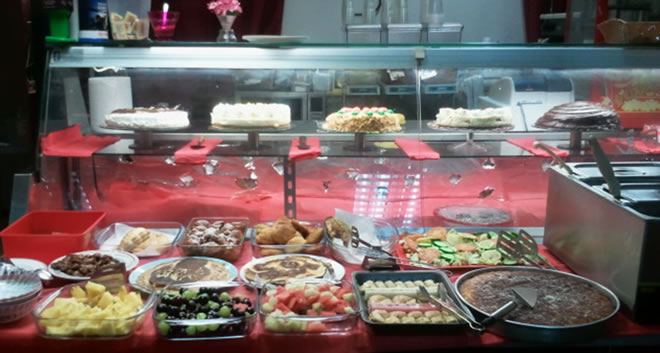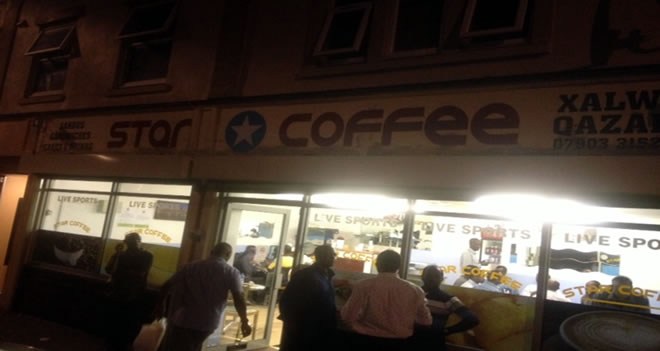Hiiraan Online
Thursday, July 24, 2014
Bristol, UK (HOL) - For Muslims the holy month of Ramadan is not like any other month for its purpose is to rid man off those habits which he has accumulated throughout the rest of the year. It is a month that prepares man for the remaining eleven months by teaching him discipline and self-control. All Muslims of adult age and who are healthy must refrain from eating and drinking for an entire month from sunrise to sunset.
In the UK, with its diverse and multi faith population, Ramadan is well understood and welcomed by most. The British Prime Minister and opposition leader both wish Muslims well through their Ramadan message broadcast publicly online and on their Party websites. Last year Channel 4, one of the largest and most independent TV station in the UK, broadcasted the call to prayer during Magrib but in the process attracted the most complaints it’s had all year from viewers. Although the number of complaints, 2,011, was small compared to the Channels daily and weekly audience figures, it still led Ralph Lee, the head of Factual Programmes at the station to emphasise that “The level of Islamophobia we encountered with the 4Ramadan season was unexpected, though much of it came from communities that were either very polarised or undiverse.”
While Islamophobia is seen to be rising in the UK by anti-racist campaign groups, Muslims living in Britain still diligently observe the 5 pillars of Islam of which fasting in ramadan is one.
“Ramadan is difficult sometimes because we are visible and you can see people do not understand what we are doing and why we are doing it,” said Abdulrahman (not his real name), an Islamic revert originally from an African Carribean background. “Obviously I reverted and there is something good about been a Muslim but I don’t think many people share that with me in Britain who are not Muslims.”
Abdulrahman asked for his identity to not be disclosed because many in his community do not know of his past encounters with the law but he converted to Islam after meeting Muslims in prison where he served 4 years for robbery. Upon release and reverting to Islam his strict Christian family cut all ties with him. He now lives in West London in a shared house with Muslim friends and is observing his first Ramadan this year.
“I love living with the brother because we do not have a lot but we pull all our resources together and we share everything,” said Abdulrahman. “How am I finding Ramadan? Boy it’s a challenge but Allah (SWT) has made it easy for me because I cook at home with the other brothers.”
Ramadan 2014: Message from PM David Cameron
Ahmed Mohamed came to Bristol in December 2013 as a refugee from Somalia. He left behind his wife and 3 children who still reside in Mogadishu. This is his first Ramadan outside of Somalia and it has been an eye opener so far.
“I never cooked anything before that was big or for family. Maybe I made tea but nothing else,” laughed Ahmed. “Now I cook my Iftaar and supper. It is not yet that good but I can’t afford restaurants.” Ahmed lives on government welfare payments while he learns English and secures a job and this is far too meagre to spend lavishly especially as he shares it with his wife and children in Mogadishu.
“This Ramadan is financially hard; I am in a new country with new rules and language. I feel alone sometimes and miss my family but I go to the mosque to pray. This helps me,” said Ahmed. Ahmed has no extended family in the UK and regularly remains in the mosque to build his local connections after prayer whereas in Mogadishu he lived in a district surrounded by his family and socialised widely after prayers whilst waiting for the early morning prayer, Fajr.
Since the ban of Khat use on the 24th June 2014 in the UK many former Khat users and addicts have had to develop alternative lifestyles to the ones they pursued in the past. Ali Duale, a Birmingham based former Khat chewer always used to chew Khat after breaking his fast in the night before this year. This is the first time in 18 years since arriving in the UK from Somalia, that he has had none to chew.
“I am happy because I can now go prayer and not chew khat but waking up early in the morning is hard because I don’t have a job,” said Ali. “Big problem is no job and Ramadan is very long in UK.”
Ali Duale separated from his wife of 13 years when his Khat use escalated in 2011 but he now makes an effort to see his children more regularly since it is Ramadan and he no longer chews khat.
“In Ramadan you miss your family and eating at home and teaching your children Koran,” reflected Ali. “Maybe next Ramadan I can eat with my children if things get better for me.”
The breaking of the fast, Iftar, is a moment many fasting long hours in the UK and Europe look forward to. Most eat at home with their families, some in restaurants and an increasingly large number now, in the Mosques.
Ramadan is a time for change for businesses too as they have to cater for fasting Muslim customers who are unable to eat anything during the day and break their fast in the night. In UK the average time for iftar is 9.15pm local time. This massive change has affected businesses in different ways.
“Customer habits and diets are different and their requirement varies during Ramadan,” said Zeynab Ibrahim, one of the few female owners of a successful cafeteria on the Stapleton Road in Bristol. “We always work hard to accommodate every customer and during Ramadan we must make extra effort.”
In recent weeks in Bristol and other cities across the UK many non Muslim residents have complained about the evening economy associated which usually operates past midnight and has become associated with antisocial behaviour. However, this is something that most Muslim business owners have fought hard to tackle.

Iftaar options on offer at Zeynabs cafeteria
“I run a busy coffee shop and I am always mindful of my neighbours and I instruct and expect my customers to be too,” said Ahmed Dagahtuur who owns Star Coffee on the same road as Zeynab. “Respecting our neighbours is not only a good business practice but it is a key requirement during this holy month.”

The night economy in full swing in Bristol
The end of the holy month of Ramadan is followed by Eid which celebrates the person’s success during the month of fasting. Eid day is a day most spend with their family but preparation for it begins very early on in Ramadan for most families with children.
Khalif Dahir is a British citizen who was recently joined in the UK by his 2 children and wife from Burao and this coming Eid is both similar and different for him in many ways.
“When my children were in Burao I used to work long hours to make enough money to send to them for their Eid presents. But now they are here they remind me every day of it,” said Khalif who now lives in East London. “We are celebrating in a different country but the children’s excitement and wants are always the same.”
HOL English News Desk